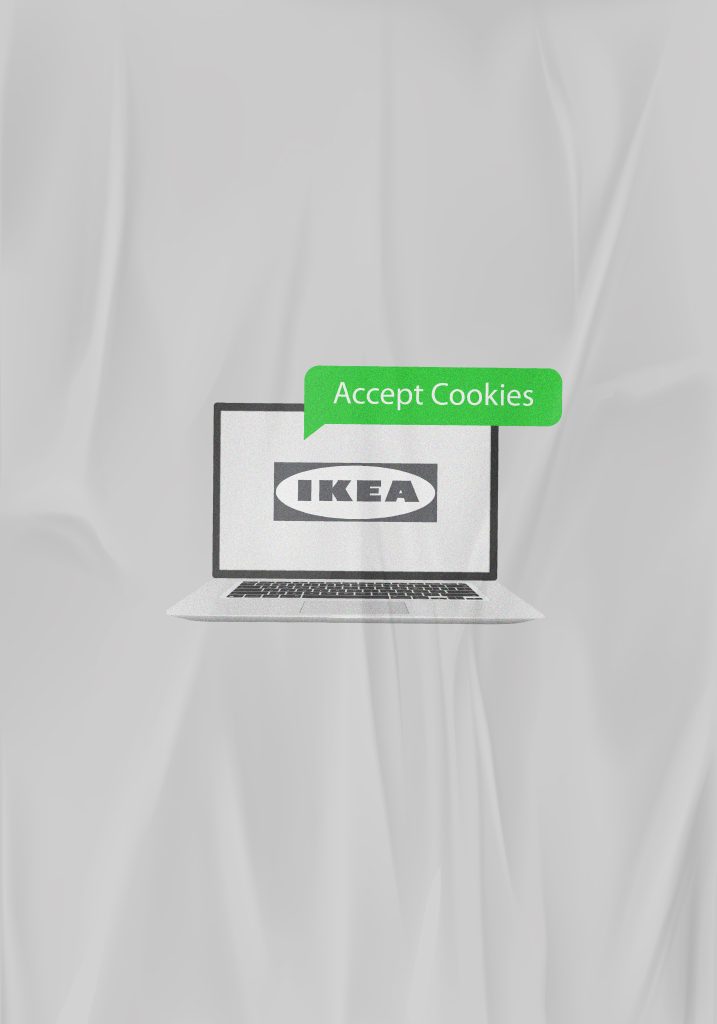Consent-Based Marketing: How IKEA Turns Privacy Restrictions into Results
In today’s digital world with a highly competitive market for businesses, data is the new currency—and every brand is competing to collect as much of it as possible. When the whole world is collecting data, the concerns around data privacy are coming into sharper focus. Regulations such as the General Data Protection Regulation (GDPR) have shifted the landscape of digital marketing, and yet data remains at the centre of it.
While data privacy continues to be the top priority of ethical digital marketing, there is one solution for various businesses and brands that helps gather the required data without breaching the privacy of consumers. The answer lies in a privacy-first approach: consent-based marketing. Consent-based marketing is an approach where consumer trust in advertising plays a key role, and the user voluntarily grants permission to collect the information and personal data. IKEA’s style quiz can be marked as a standout example of marketing with user permission.
What is Consent-Based Marketing?
Every internet user is now aware of the tracking of information via cookies and caches. Hence, the impact of third-party cookies is declining. The core idea of consent-based marketing implies: user permission comes first. Three types of data are usually collected on a website, viz., the first-party data, the third-party data, and the zero-party data.
The first-party data is the data collected directly by a company from its customers. In the third-party data, the company that actually uses the collected data has no direct relationship with the customer. This data is collected from various sources and sold by other data providers. The zero-party data falls under the data that is intentionally or proactively provided to the brand by the consumer. The user already knows that the data will be explicitly used by the company to create a personalised experience for the customer. The zero-party data becomes the most reliable and ethical source of information. The reason is simple and clear: it is collected directly from the consumer with consent.
In simple terms, the collection of zero-party data with the consent of the consumer is called consent-based marketing.
IKEA’s Style Quiz: Consent in Action
IKEA played a smart move and executed privacy-first advertising in a strategic way. They selected an enjoyable interaction path for customers and transformed it into a data collection tool for the company.
The quiz is designed to be a fun experience for users. Customers actively participate in the quiz with an invitation from IKEA, define their home style, and provide the relevant data.
How the IKEA Style Quiz Works:
Voluntary Input: Users voluntarily answer a series of questions about their preferences in home decor, lifestyle needs, furniture styles, etc. The zero-party data is gathered from this quiz and used for the personalised experience for consumers.
Opt-in for Personalisation: A choice is provided to the quizzer (prospective customer) at the end of the quiz to opt for personalised suggestions on the basis of the outcome. This is where consent-based marketing comes into play when the customer grants permission. This intentionally shared data is then used for ethical digital marketing.
Personalised Recommendations: This data is used by IKEA to provide relevant product suggestions that align with the customers’ style and preferences. This marketing with user permission feels more like a helpful service.
The power of privacy-first advertising
Trust & Transparency: Consumer trust in advertising plays a key role in defining the loyalty of the customer. The consent-based strategy builds trust as it is marketing with user permission. In this approach brand keeps complete transparency in data collection and informs the end-users how the collected information will be utilized.
Better Personalisation: Users are typically clear about their preferences. Since the information is first-hand, the suggestions based on the data feel more relevant.
Loyalty: Marketing with the user permission feels more personal. Consumers feel valued and in control. This feeling naturally helps increase brand loyalty.
Higher-Quality Data: The information received from the consent-based marketing is the zero-party data. Therefore, they provide more precise and actionable insights for the company.
Cost efficiency: Privacy-first advertising has a focus on the genuinely interested audience. This reduces wasted ad expenses and also improves the conversion rate. This ethical digital marketing becomes a cost-effective option with higher-quality data and better targeting.
Compliance: IKEA’s Style Quiz strategy aligns with privacy regulations. The marketing impact is not diluted with this approach. The brand has earned the consumer trust in advertising with it.
Other Brands Getting It Right
IKEA is not the only brand that practices privacy-first advertising. There are many brands in our day-to-day life that use this modern ethical digital marketing approach for the best results. Let’s look at two standout examples from the entertainment industry.
The music app Spotify uses consent-based marketing with its Spotify Wrapped campaign. It uses listening habits (with consent) and creates personalised recaps for listeners with the collected information. The OTT platform Netflix has its recommendations totally based on the user behaviour and not via third-party tracking. Apart from Spotify and Netflix, brands like Sephora, Nike, Starbucks, Drunk Elephant, etc. also practice marketing with user permission.
Bringing It All Together
The output of any campaign or marketing is based on consumer trust in advertising. The traditional ad strategies, such as retargeting, popups, etc., are losing effectiveness and trust. The brands should rethink their brand strategy and shift to ethical digital marketing. This approach and interactive tools like quizzes, preference builders, and recommendation engines are the future of advertising.
Privacy-based advertising and a user-centric approach play an important role in IKEA’s success. It proves that consent-based marketing isn’t a limitation—it’s an opportunity; an opportunity that every brand should grab in this rapidly changing business landscape.
Frequently Asked Questions
What is consent-based marketing?
Consent-based marketing is a method whereby companies ask permission from customers prior to collecting their personal information. This ensures that the marketing is on a foundation of trust instead of invasive tracking. This process creates more substantial interaction and long-term brand loyalty.
What is zero-party data?
The zero-party data comes under the category of data that is proactively or willfully provided to the brand by the consumer. The user is already aware that the data is going to be used specifically by the company to design a personalised experience for the customer.
What are the benefits of consent-based marketing?
Consent-based marketing gains trust because it gives users control over their data. It creates strong relationships and long-term brand loyalty. It also gives better-quality insights, as the data is volunteered and thus more reliable.
Is consent-based marketing GDPR compliant?
Yes, consent-based marketing is GDPR compliant as it demands explicit, informed consent from users prior to gathering and using their personal data.



